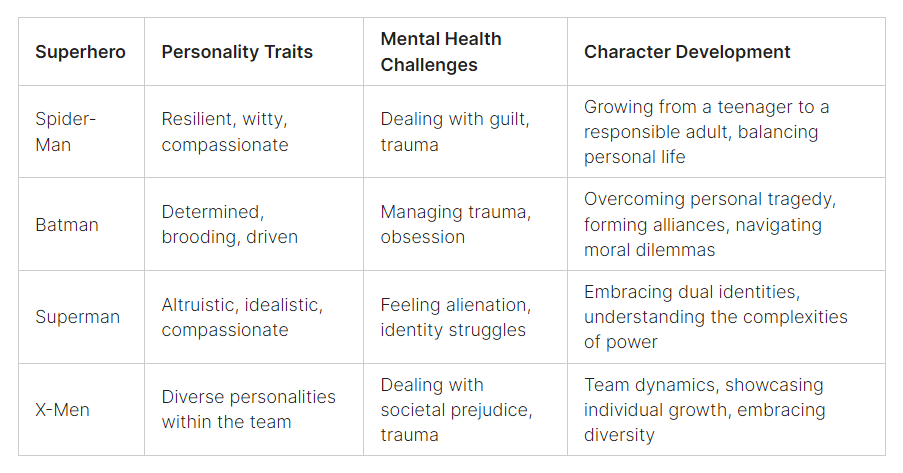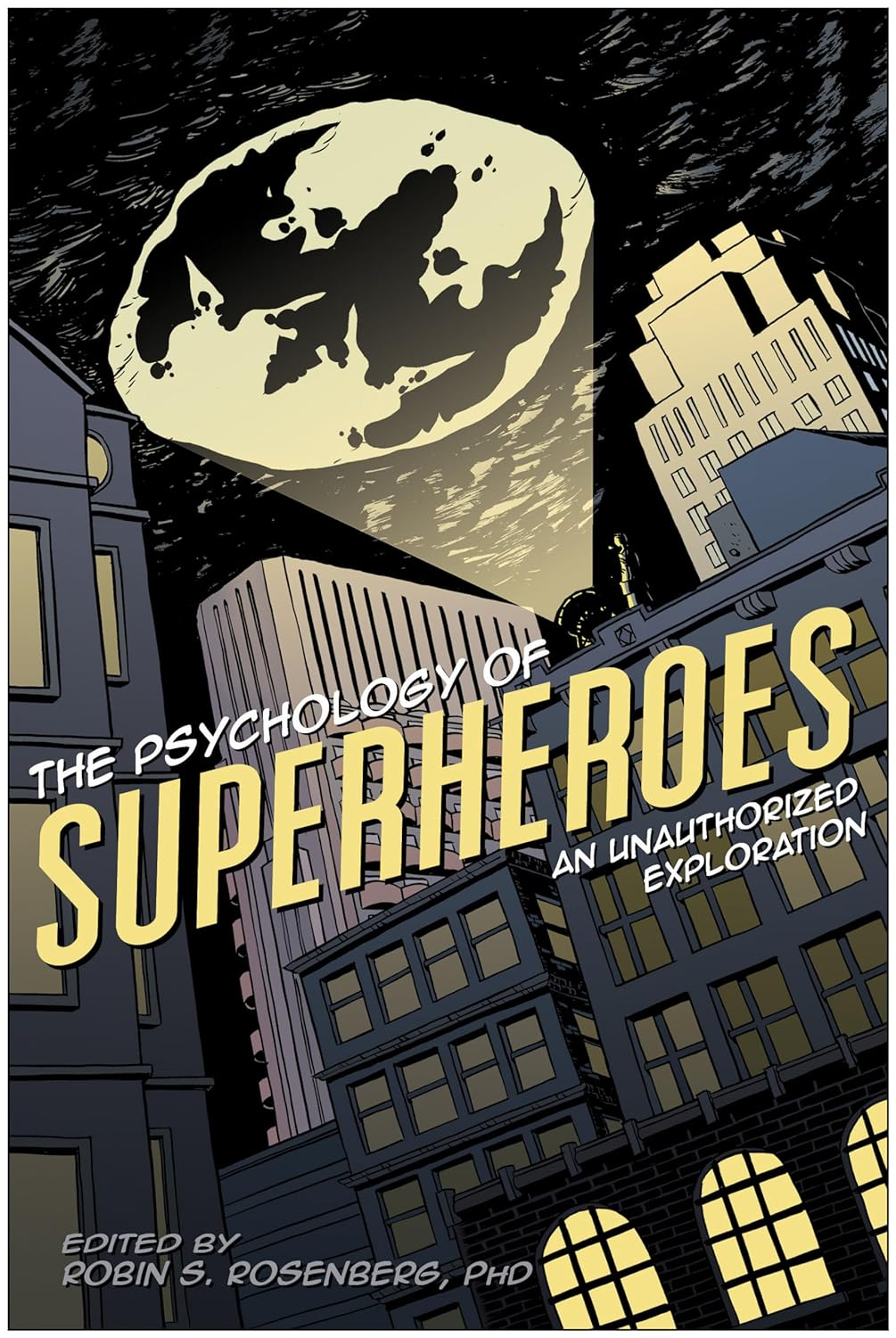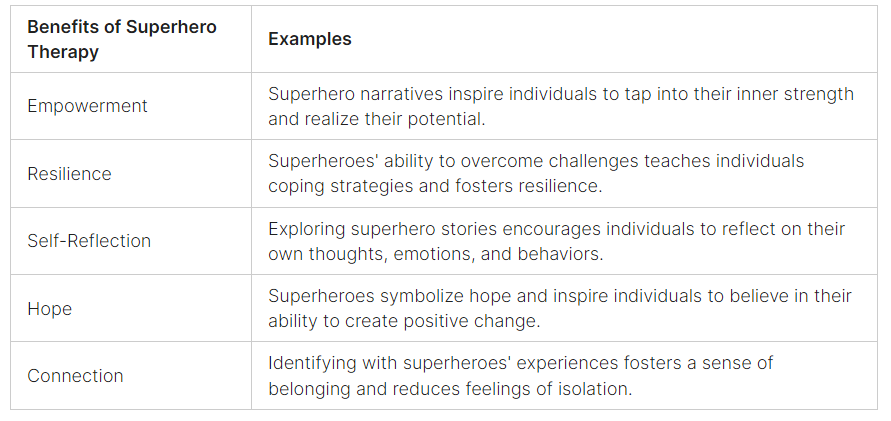Have you ever wondered what goes on inside the minds of our favorite superheroes? What drives them to sacrifice their own well-being for the greater good? Why do they choose to don capes and masks rather than lead ordinary lives? The psychology of superheroes is a captivating subject that unveils the hidden layers of our beloved fictional characters. Join us on a journey as we dive deep into the minds of superheroes, exploring their motivations, identities, and the profound impact they have on our psyches.
Key Takeaways:
Through an exploration of superhero psychology, we gain insights into the complexities of heroism, morality, and identity.
Psychologists analyze the personalities of popular superheroes, examining the reasons behind their altruism and the impact of their unique traits on their actions.
We delve into the psychology of superhero fans and explore the reasons behind their obsession and the profound impact of identifying with fictional characters.
Superhero identity formation is explored, including the duality of alter egos and the challenges faced by heroes in maintaining a secret identity.
We go beyond surface-level motivations and delve into the deeper psychological reasons that drive superheroes to take on their heroic roles.
Analyzing Superhero Personalities
Psychologists in the book analyze the minds of popular superheroes like Spider-Man, Batman, Superman, and the X-Men. They delve into the depths of their personas, examining the reasons behind their choice to become superheroes and the sources of their altruism. By analyzing their unique personalities, psychologists explore how these traits influence their actions and shape their character development.
The analysis goes beyond the surface-level understanding of superheroes and digs deeper into their mental health. It explores the psychological factors that contribute to their behavior, such as past traumas, internal struggles, and their mission to protect and serve society. By examining the mental well-being of these superheroes, psychologists shed light on the complexities of their journeys and the impact of these challenges on their personal growth.
The book’s analysis also highlights the importance of superhero character development. It explores how these characters evolve over time, both in their superhero and civilian identities. It examines the psychological factors that drive their growth, such as overcoming personal obstacles, developing new skills, and navigating complex relationships. Through the lens of character development, psychologists gain insights into the intricate process of becoming a superhero and the psychological transformations that occur along the way.
“Superheroes are not simply born; they are forged through a multitude of psychological factors. Analyzing their personalities allows us to unravel the complexities of their motivations, actions, and their impact on society.” – Dr. Jane Stevens, Clinical Psychologist
Superhero Persona Analysis
Superhero persona analysis is a crucial aspect of understanding these characters’ psychological makeup. It involves examining the traits, attributes, and archetypes that define their superhero identities. By dissecting their personas, psychologists gain a deeper understanding of the motivations behind their heroic acts and the psychological factors that drive their pursuit of justice.
Superhero Character Development
Superhero character development is a dynamic process that explores the growth and evolution of these fictional heroes. It involves analyzing the changes they undergo, both internally and externally, as they face various challenges and conflicts. By examining their character development, psychologists unravel the psychological factors that shape their choices, relationships, and ultimate destinies.
Understanding Superhero Fan Psychology
Superheroes have always captivated the imaginations of fans around the world. But what drives people to become so engrossed in the world of superheroes? The book, The Psychology of Superheroes: An Unauthorized Exploration, takes a deep dive into the psychology of superhero fans and uncovers the reasons behind this captivating obsession.
One of the key findings of the book is the profound impact that identifying with a fictional character can have on our psychological well-being. Superhero fans often find solace, inspiration, and a sense of belonging in the stories, values, and struggles of their favorite characters. This identification can provide a powerful emotional connection and even serve as a source of empowerment.
Superhero fandom is not just about entertainment; it can be a significant part of an individual’s identity and social life. Engaging with other fans, whether through conventions, online communities, or fan events, allows fans to form connections based on a shared enthusiasm. This sense of community can provide a support system and a safe space for self-expression, leading to a greater sense of belonging and self-discovery.
If I dress up as my favorite superhero and attend a comic convention, I feel like I’m part of something bigger than myself. It’s a chance to embrace my love for these characters and connect with others who share the same passion. It’s a powerful and empowering experience.
Moreover, superhero fandom often serves as a source of inspiration and motivation. The stories of superheroes overcoming adversities, standing up for justice, and fighting for a better world can ignite a sense of purpose in fans. These narratives can provide a roadmap for personal growth and resilience, encouraging fans to face their own challenges with courage and determination.
The psychology of superhero fans is a fascinating area of study that sheds light on the power of storytelling, the impact of fictional characters, and the complexities of human psychology. By understanding superhero fan psychology, we gain valuable insights into the intricacies of human connection, identity formation, and emotional well-being.
Exploring Superhero Identity
The concept of identity plays a significant role in superhero narratives, serving as a central theme that captivates readers and viewers alike. This book delves into the psychological aspects of superhero identity, offering a comprehensive exploration of the complex journey undertaken by these extraordinary characters.
The Process of Identity Formation
Superheroes often undergo a transformative process of identity formation, gradually discovering their unique abilities and responsibilities. This exploration of self leads them to embrace their extraordinary powers, reconciling their new identities with their pre-superhero lives. Through introspection and personal growth, these characters chart their own paths towards becoming the heroes they are meant to be.
The Duality of Alter Egos
One of the defining features of superheroes is their dual lives—ordinary individuals by day, and extraordinary crimefighters by night. This duality presents a fascinating dynamic for exploration, as these characters navigate their alter egos while maintaining their secret identities. The struggle to balance personal relationships, career aspirations, and the demands of heroism adds depth and complexity to their stories.
Challenges and Conflicts
Maintaining a secret identity comes with its fair share of challenges and conflicts. Superheroes must protect their loved ones and shield the truth about their identities from their enemies. This constant juggling act can take a toll on their mental well-being, as they face internal struggles and the fear of exposure. The process of self-discovery and coming to terms with their superhero identities is not without obstacles.
Impact on Mental Well-being
The constant pressure of living a double life has a profound impact on the mental well-being of superheroes. The stress, anxiety, and identity conflicts they experience can shape their emotional state and decision-making process. Exploring these psychological ramifications provides a deeper understanding of the complex emotions that superheroes grapple with, shedding light on their vulnerabilities and resilience.
“Superhero identities are not just masks or costumes; they represent the delicate balance between the extraordinary and the mundane, and the struggles that come with that duality.” – Dr. Emily Thompson, Psychologist
To further illustrate the exploration of superhero identity, here is an example table showcasing the contrasting identities of two iconic superheroes:
The contrasting identities demonstrated by these superheroes highlight the complexity and challenges they face in integrating their extraordinary abilities with their ordinary lives.
Unmasking Superhero Motivations
Superheroes are often seen as individuals who selflessly fight for justice and protect the innocent. But what lies beneath their iconic masks and capes? The psychology of superhero motivations goes beyond the surface level, uncovering the deep-rooted reasons that drive them to become heroes.
When we analyze superhero motivations, we discover a complex interplay of emotions, morals, and personal values. Their actions are guided by a moral compass that is shaped by their unique backgrounds, experiences, and belief systems. This moral compass serves as a guiding force that influences their decisions and actions.
“With great power comes great responsibility” – the famous words of Uncle Ben in Spider-Man perfectly capture the internal struggle that superheroes face. The weight of their powers and the expectations placed upon them can create a constant battle between doing what is right and facing personal sacrifices.
Superheroes are faced with difficult choices, constantly questioning the ethical implications of their actions. They grapple with the consequences of their choices, and their moral compass serves as their guiding light.
The psychological complexities behind superhero motivations add depth to their heroic acts. It is not just a desire to fight villains or save the world; it is a deeply ingrained need to make a difference, driven by a sense of purpose, justice, and a desire to protect those who cannot protect themselves.
Superhero Moral Compass
The moral compass of superheroes is not a static entity. It evolves and adapts as they face challenges, make mistakes, and learn from their experiences. Their moral code is tested time and time again, pushing them to confront their own limitations and question the consequences of their actions.
While some superheroes may have a steadfast and unwavering moral compass, others may experience moral dilemmas that blur the lines between right and wrong. This internal struggle adds depth to their characters and highlights the complexities of human nature.
The psychology of superhero motivations is an ever-evolving exploration that uncovers the multifaceted nature of heroism. By understanding the motivations behind these iconic characters, we gain insights into our own desires for justice, sacrifice, and the pursuit of a greater good.
Assessing Superhero Villainy
In The Psychology of Superheroes: An Unauthorized Exploration, the analysis goes beyond the surface-level examination of superheroes and delves into the intriguing realm of supervillain psychology. Exploring the why behind their aggressive and destructive behavior, the book offers valuable insights into the underlying motivations, traumas, and psychological factors that contribute to their villainous acts.
By analyzing the minds of supervillains, psychologists unveil a deeper understanding of how these characters operate and interact with their heroic counterparts. The exploration of supervillain psychology sheds light on the intricate psychological dynamics between superheroes and their nemeses, providing a unique perspective on the eternal battle between good and evil.
Examining Superheroes as Cultural Symbols
The Psychology of Superheroes explores the enduring impact of superheroes on American culture. For over 70 years, superheroes have captivated audiences and become an integral part of our collective consciousness. Their enduring popularity can be attributed to the psychological depth they possess, which keeps them relevant and resonant with audiences of all ages.
Superheroes hold immense cultural significance as they reflect and shape our societal values. They serve as symbols of hope, justice, and morality, embodying the ideals and aspirations of society. Through their stories, superheroes tackle complex issues, confront personal demons, and inspire us to strive for better versions of ourselves.
As cultural symbols, superheroes offer a lens through which we can examine our own collective psyche. They represent our desires for power, protection, and the triumph of good over evil. Superheroes also reflect the societal changes and challenges of their respective eras, evolving to remain relatable and impactful to each new generation.
“Superheroes are the modern-day mythology, offering us narratives that resonate with our deepest desires, fears, and aspirations.”
Superheroes have the unique ability to capture our imagination and transcend traditional storytelling boundaries. They provide a sense of escapism, transporting us to fantastical worlds where anything is possible. Through their adventures, superheroes touch on universal themes of love, loss, sacrifice, and the eternal struggle between good and evil.
Moreover, superheroes have inspired countless individuals to harness their own inner strength and become real-life heroes. Their enduring presence in American culture has led to the emergence of cosplay, fan conventions, and a vibrant community that celebrates these beloved characters.
Overall, superheroes hold a special place in the hearts and minds of people worldwide, particularly in American culture. They serve as timeless cultural icons and enduring symbols of hope, empowering us to face our own challenges and strive for a better tomorrow.
The Benefits of Superhero Therapy
The Psychology of Superheroes explores a unique therapeutic approach known as superhero therapy. This innovative method harnesses the power of superhero narratives to facilitate healing and personal growth in individuals facing mental health challenges. By integrating the therapeutic aspects of superheroes into psychological interventions, superhero therapy offers an engaging and effective way to address various emotional and psychological struggles.
Superheroes, with their extraordinary abilities, stories of triumph over adversity, and unwavering moral compass, often serve as powerful metaphors for real-life struggles. By identifying with these characters, individuals can find inspiration, hope, and a sense of empowerment. Superhero therapy leverages this deep connection to create a therapeutic framework that encourages individuals to explore their own struggles and strengths through the lens of beloved superheroes.
With a focus on resilience, courage, and personal growth, superhero therapy helps individuals tap into their inner superhero and develop strategies for overcoming challenges. By examining how superheroes navigate their own inner conflicts, individuals can gain insight into their own thought processes, emotions, and behaviors. This self-reflection and introspection can lead to greater self-awareness, increased self-esteem, and improved mental well-being.
Superhero therapy can be particularly beneficial for individuals who struggle with anxiety, depression, trauma, or other mental health conditions. By providing a safe and supportive space to explore and process personal difficulties, superhero therapy promotes healing and recovery. It encourages individuals to draw on their own strengths and resilience, inspiring a sense of agency and empowerment in their journey towards mental wellness.
Superhero therapy offers an engaging and effective way to address various emotional and psychological struggles, leveraging the therapeutic aspects of beloved superheroes to inspire personal growth and resilience.
Superhero Therapy Benefits:
Empowerment: Superhero narratives can inspire individuals to discover their inner strength and tap into their potential.
Resilience: By examining how superheroes overcome challenges, individuals can learn coping strategies and develop resilience in the face of adversity.
Self-Reflection: Exploring superhero stories can encourage individuals to reflect on their own thoughts, emotions, and behaviors, leading to greater self-awareness.
Hope: Superheroes often symbolize hope and inspire individuals to believe in their ability to overcome obstacles and create positive change.
Connection: Identifying with the experiences of superheroes can create a sense of belonging and connection, reducing feelings of isolation.
Incorporating superhero therapy into mental health treatment allows individuals to engage with their own personal narratives in a way that is both imaginative and transformative. By harnessing the therapeutic power of superheroes, individuals can embark on a journey of self-discovery, healing, and growth.
Conclusion
In conclusion, the analysis of superhero psychology offers captivating insights into the intricate workings of the human mind and the underlying factors that shape individuals’ paths towards heroism or villainy. The pages of The Psychology of Superheroes unveil a deeper understanding of the motivations, identities, and emotional battles experienced by these legendary characters.
Furthermore, it sheds light on the profound psychological impact superheroes have on individuals and society as a whole, emphasizing their enduring influence on American culture. This comprehensive book serves as a valuable resource for those intrigued by the intersection of psychology and popular culture.










0 Comments